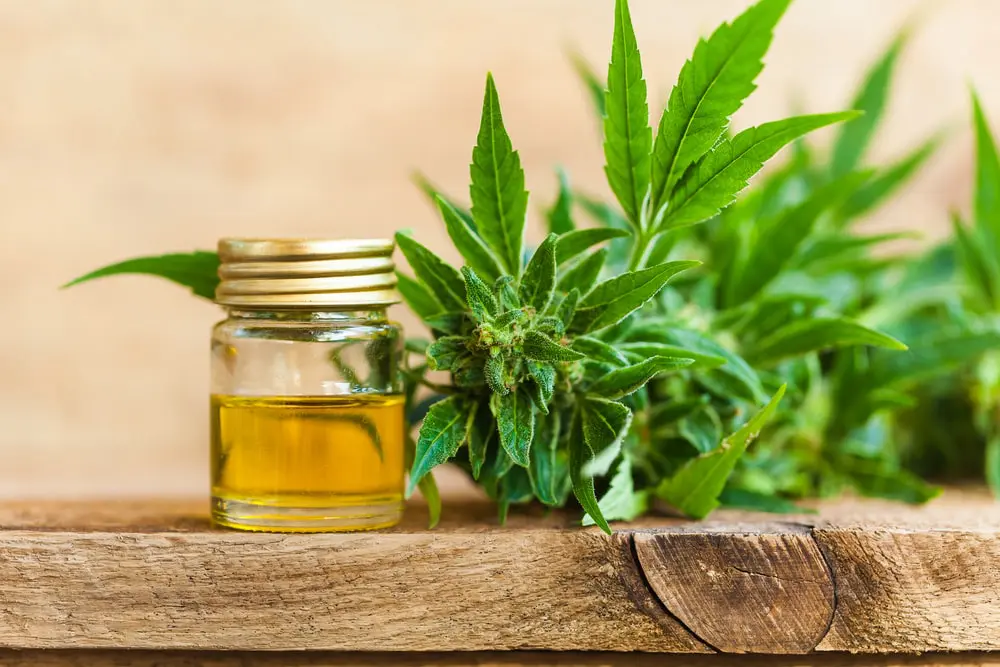How Long Does CBD Stay in Your System?

Cannabidiol (CBD), and tetrahydrocannabinol (THC) are two of the most well-known compounds in cannabis plants. The latter has psychoactive effects and causes the high marijuana is famous for. THC use impairs judgment and coordination.
As a result, THC and its byproducts are what’s tested for in standard 5-panel and 10-panel drug tests. Pure CBD will not show up on these tests. Tests that can detect CBD are available but they’re more expensive and are not widely used.
How Long Does CBD Stay in Your Urine?
In some cases of heavy use, CBD can stay in the system for up to a week, and windows of detection extend to more than a month. In the case of single exposures, THC and its metabolites are detectable in urine for about 3 days after the last time taken.
Most urine tests come back positive if you consume more than 2,000 mg of legal CBD products per day. This might seem like a large number but frequent use of CBD products could trigger a false-positive test result. This is a possible outcome when you consider that CBD and THC accumulate in the body.
How Long Does CBD Stay in Your Blood?
Blood tests focus on recent use. THC is only detectable in blood for approximately 5 hours, but its metabolites can remain in the system for up to 7 days.
Taking CBD products with unknown amounts of THC would only yield a valid result if a lab test was done on a blood sample within this short period of time.
How Long Does CBD Stay in Your Saliva?
THC can be found in saliva for about 72 hours but chronic use of CBD products tainted with THC could extend this window of detection. Analyzing saliva to detect CBD is rare.
How Long Does CBD Stay in Your Hair?
In general, substances such as CBD can be detected in hair up to about 3 months after they were last taken. Trace amounts of THC will likely not show up in a hair test.
How Long Do the Effects of CBD Last?
The duration of CBD’s effects depend largely on the method of consumption, but in general, CBD lasts between 2 and 6 hours.
Smoking or vaping causes the substance to enter the body rapidly via the lungs. Two teaspoons of a concentrated CBD tincture taken sublingually can also take effect within an hour. These fast-acting modes of administration tend to wear off sooner too.
Chewables have to go through the GI tract before entering the bloodstream, so effects take a little longer to kick in with peak blood levels being reached at around three hours after ingestion. This method of consumption has a more prolonged effect lasting up to eight hours. People often over-consume edibles because the results aren’t instant.
Topical applications like creams also last longer. Because CBD is not psychoactive, it’s more difficult to determine when it’s actually taking effect.
How Does CBD Affect the Brain?
Research on THC in the 1990s led to the discovery of the endocannabinoid system (ECS). Scientists found that our bodies naturally make molecules that are similar to cannabinoids from cannabis plants.
These molecules support our immune systems and are broken down when they’ve completed their function. There are receptors for endocannabinoids all over the body including the central nervous system (CNS). And as it turns out, THC binds to them and CBD does so weakly or not at all. CBD may in fact reduce the effects of THC by blocking it.
CBD influences the release of neurotransmitters in the brain which impact pain, anxiety, sleep, and other functions.
Factors That Influence Detoxing from CBD
Regardless of gender, CBD is generally believed to have an elimination half-life of one to two days. This means that half of the dose leaves the body at this time. But how long it lasts is not the same for everyone. Unique factors that determine how quickly CBD is expelled include:
- Age
- Weight – CBD is fat-soluble and is stored in fatty tissue
- Frequency of use – CBD can accumulate in your system
- Mode of ingestion
- Dosage
- Potency
- Metabolism
- Genetics
To summarize:
Most drug tests look for THC rather than CBD. If you are concerned about an upcoming drug test, avoid the use of CBD products that could contain unknown amounts of THC. THC can typically be detected within these windows:
- Urine – 3 to 30 days
- Blood – 5 hours up to a week
- Saliva – 72 hours or more with heavy use
- Hair – about 3 months
Treatment for CBD Dependence
According to the World Health Organization (WHO), pure CBD has no abuse potential. But CBD products can cause psychological dependence. And THC can cause marijuana use disorders and withdrawal symptoms which negatively impact users’ health and productivity.
If you or someone you know is struggling with a dependency on CBD, help is available. Treatment programs include tailored therapy sessions to address the underlying issues leading to substance misuse. Humans can form bad habits, but bad habits can be unlearned. Take the first step towards a brighter future today.
- https://www.drugabuse.gov/publications/research-reports/marijuana/does-marijuana-use-affect-driving
- https://www.healthline.com/health/how-long-do-edibles-take-to-kick-in#onset-time
- https://www.healthline.com/health/endocannabinoid-system-2#takeaway
- https://www.wired.com/story/cannabis-science-entourage-effect/
- https://www.ncbi.nlm.nih.gov/pubmed/1666917
- http://www.ndci.org/sites/default/files/ndci/DCR.VI__2.pdf
- https://www.cnet.com/news/can-cbd-make-you-fail-a-drug-test/
- https://www.vice.com/en_us/article/xwjmpj/cbd-drug-test
- https://www.ncbi.nlm.nih.gov/pmc/articles/PMC4189631/
- https://www.who.int/medicines/access/controlled-substances/CannabidiolCriticalReview.pdf
- https://www.theguardian.com/society/2019/apr/28/marijuana-addictive


